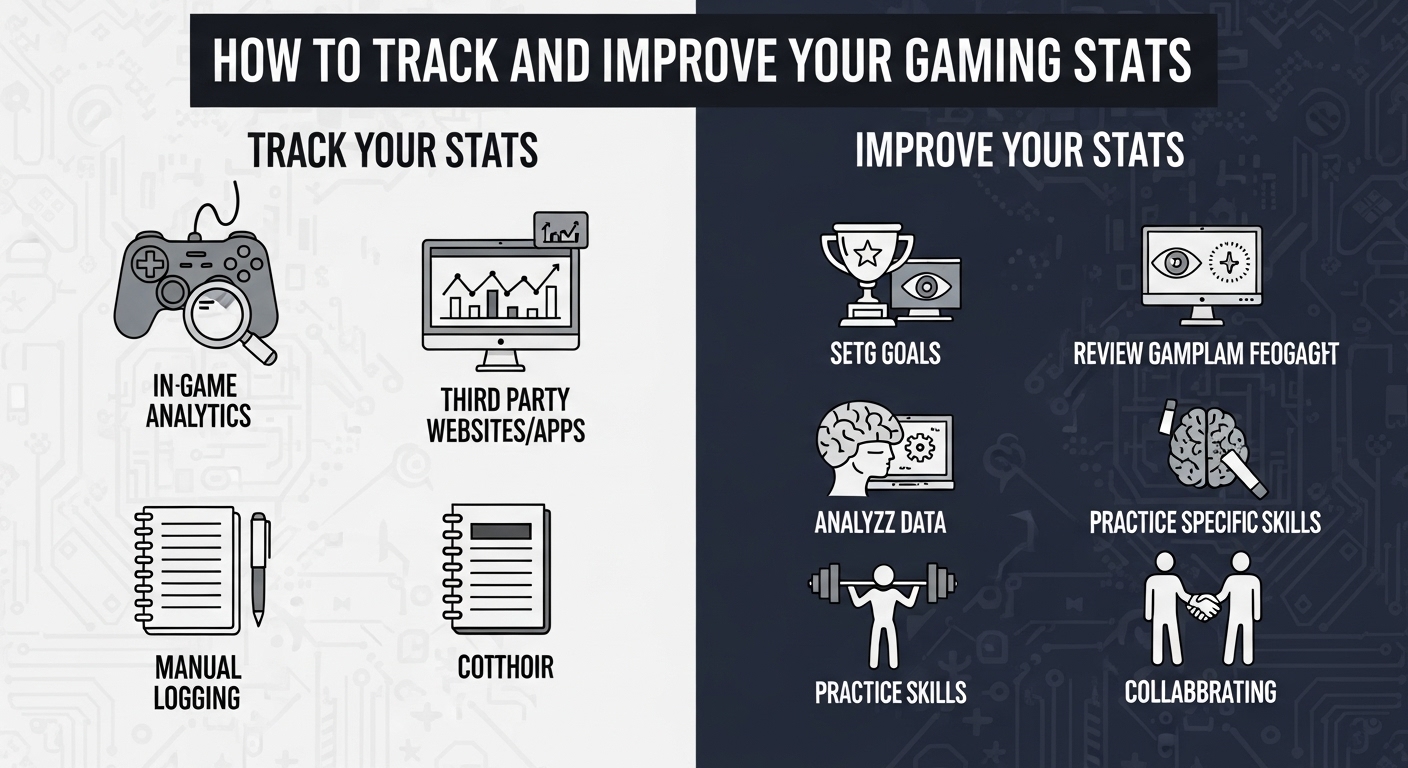Introduction
Tracking gaming stats is a critical step for self-improvement and competitive success. By measuring performance, identifying weaknesses, and applying data-driven strategies, gamers can consistently elevate their gameplay.
1. Why Tracking Stats Matters
- Measure Progress: Understand improvement over time.
- Identify Weaknesses: Pinpoint areas needing focused practice.
- Set Goals: Establish clear, achievable milestones for growth.
Pro Tip: Treat stats as a tool for growth, not just numbers.
2. Tools for Tracking Stats
- In-Game Analytics: Many games provide detailed metrics like accuracy, completion times, and scores.
- Third-Party Trackers: Apps and websites track rankings, progression, and match stats.
- Manual Logs: Spreadsheets or journals for tracking personal bests and trends.
Pro Tip: Combine multiple tools for a complete overview of your performance.
3. Key Stats to Monitor
- Accuracy & Hit Rates: Crucial for shooters and precision games.
- Completion Time: For speedruns, campaigns, or timed challenges.
- Score & Combo Chains: Maximize points in arcade, puzzle, or rhythm games.
- Win/Loss Ratio: For competitive and multiplayer games.
Pro Tip: Focus on actionable stats that can guide improvement rather than tracking everything.
4. Analyzing and Applying Your Data
- Pattern Recognition: Identify recurring mistakes or inefficiencies.
- Benchmarking: Compare performance against top players or community averages.
- Adjusting Strategies: Use insights to refine tactics, controls, and approaches.
Pro Tip: Review data regularly and adjust your practice routine based on trends.
5. Tracking for Competitive Improvement
- Tournament Readiness: Monitor metrics to identify gaps before competitive events.
- Team Analysis: Share stats with teammates to improve coordination.
- Personal Best Tracking: Keep logs for motivation and goal-setting.
Pro Tip: Combine personal stats with peer insights for faster skill growth.
6. Tools and Tips for Effective Tracking
- Software: Use platforms like Overwolf, Tracker.gg, or specialized game analytics apps.
- Regular Reviews: Weekly or monthly reviews help maintain consistent improvement.
- Visualization: Graphs, charts, and heatmaps make patterns easier to understand.
Conclusion
Tracking and improving gaming stats transforms casual gameplay into data-driven skill development. By monitoring accuracy, timing, scores, and strategic performance, gamers can continuously enhance their abilities, achieve higher scores, and compete at a professional level.

